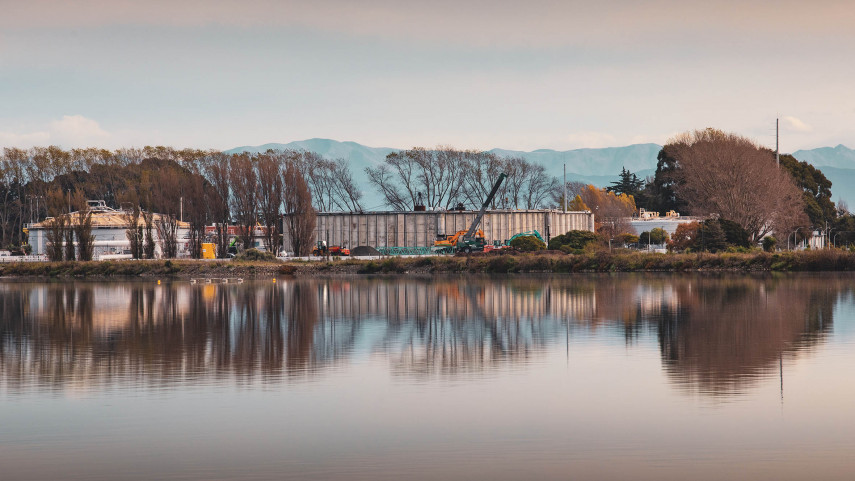
Settlement secures future for treatment plant

Share this story
An activated sludge reactor will replace the fire-damaged trickling filters at the Christchurch Wastewater Treatment Plant to fix long-standing odour issues impacting local residents.
Christchurch City Council and its insurer have settled an $85 million insurance claim following the fire in 2021, which destroyed two trickling filters at the plant in Bromley.
The filters were a critical part of the sewage treatment process, and the damage impacted the treatment process causing major odour issues that have affected the local community.
The settlement was approved by Councillors unanimously and follows complex negotiations. Confidentiality was required for these negotiations so we could get the best outcome for residents and the environment.
It is anticipated the activated sludge reactor will be up and running in about three years. We will have more certainty on the timeline as work progresses.
Mayor Phil Mauger said this significant milestone allows the Council to move forward with building both a more resilient and environmentally friendly wastewater treatment plant for the city.
“From the day the fire started, the community has been impacted by the loss of these trickling filters, the stench caused by the interim solution was unbearable.”
“It has been an incredibly distressing time for locals, and we acknowledge this has been a lengthy process. While confidentiality was necessary throughout the negotiations, it resulted in uncertainty for the community over a permanent solution to the fire damage,” Mayor Mauger said.
“So, I want those directly impacted and all Christchurch residents to know that behind the scenes we have been moving heaven and earth to get to this position today.”
“I want to acknowledge the local Councillors and Community Board Members who have been working hard to make sure residents are heard and their concerns considered. I also want to acknowledge the insurers - settling at this point has meant the Council was able look to an improved solution.”
“We owe it to the people of Christchurch, particularly the surrounding residents, to remove what’s left of the filters and construct an up-to-date new activated sludge system which I am told is lightyears better for treatment and odour control,” the Mayor said.
Design work is underway and it is expected to take up to three years to get the sludge reactors up and running.

The 2021 fire destroyed the trickling filters at the Christchurch Wastewater Treatment Plant.
“We’re getting on with this permanent fix as quickly as we can. Once the new system has been constructed and commissioned, it will address the odour issues that have been experienced for the last three years,” he said.
Activated sludge reactors are a common and well-known treatment process worldwide, and in New Zealand. It is the best method to treat wastewater from a resilience, growth, sustainability, and long-term cost perspective.
“The trickling filters are 50 years old, and in that time technology has moved forward in leaps and bounds. This new activated sludge system will provide us with the opportunity to significantly reduce emissions and has a smaller footprint that can be upsized at a lower cost to accommodate our growing population,” Mayor Mauger said.
The current estimate cost is $140 million, which will likely be refined following detailed design. Funding is included in the Long Term Plan so there will be no impact on rates.
“We’ll be able to build the activated sludge reactor without disrupting our current operations. In the meantime, we’re working hard to keep the damaged plant running with minimal odour and will continue to keep the community updated on progress,” the Mayor said.
“Keeping the plant running in its damaged state is challenging and there will always be an element of unpredictability, but our team is experienced and quick to respond to whatever is thrown at them.”
The Council has number of projects underway to improve operation and will continue weekly monitoring of hydrogen sulphide levels in the area around the plant.
